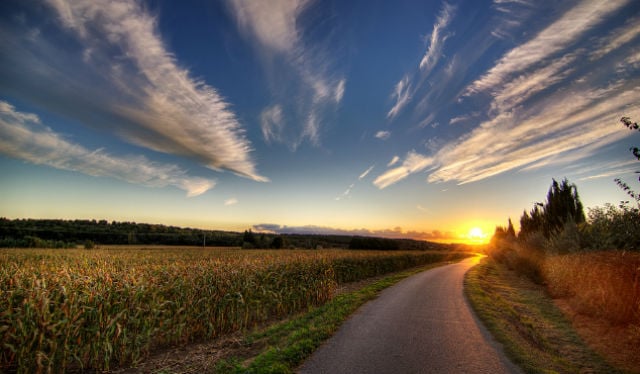When I was diagnosed with breast cancer in August last year, I initially imagined being in the French healthcare system would mean the well-trodden path of surgery, chemotherapy then radiotherapy.
Little did I know in south west France the world of healthcare is much more inclusive.
My understanding of the French healthcare system had been one of rational efficiency, driven by Cartesian thinking.
I turned out to be wrong: in fact, in my experience the doctors and nurses I have encountered are open to alternative methods of healing, working hand-in-hand with modern-day medicine.
At my first appointment with the surgeon in an uninspiring 1980’s hospital in Mont de Marsan, in the Landes, my preconceptions were immediately challenged. The waiting room had a large Buddha in the corner of the room, with fresh flowers at its feet.
 (AFP)
(AFP)
The surgeon’s office had wall to wall statues and paintings of angels and fairies, along with other deities. My surgeon had an open smiling face … and a jam-packed waiting room.
South west France has a tradition of alternative healing with hypnotism as well as fire prayer healers present in many villages.
The gift of healing and the knowledge that goes with it is passed down from generation to generation by the local practitioners.
The healers usually work by bouche à l’oreille (word of mouth) and almost never advertise their services. Healers can also have different specialties, such as sprains, back problems or tumours.
When my husband and I first arrived in the Gers, a very beautiful and little-known départment, I listened with fascination when I discovered neighbours regularly visited these healers. Also I was astonished to hear that the fire prayer healers would be contacted by the burns unit of local hospitals when regular treatment was not taking effect.
Part of my cancer treatment is radiotherapy, which can burn the skin. When speaking about my planning for the months ahead and possible side effects, I asked if there was anything natural I could use on my skin to counteract the burning.
I was expecting to be told about a particular cream I could use, essential oils or maybe an aloe vera plant. Instead the nurse instead produced a list of local healers, with a chart showing what ailments they treated and their specialties.
I was given the name and number of a fire prayer healer near to my house, who was also a hypnotist who would help counteract the negative side effects of chemotherapy too.
 (AFP)
(AFP)
When I met the healer, I asked how many of her patients were referrals from the hospital, to which she replied that the vast majority were. She kept her prices deliberately low in order to help as many people as she could, and rather than claiming to cure cancer, she said her job was to make the healing process easier, although sometimes astonishing changes did happen.
The other thing which is striking in the French healthcare system, but perhaps not that surprising, is the importance of diet. Every medical professional I have spoken with has, without exception, asked me if I am being careful with my eating and stressed the importance of reducing my intake of sugar, alcohol and meat.
A nutritionist almost always comes to speak to me when I am in the hospital to check on my diet. When I asked friends who had been treated for cancer in the UK and Italy, they told me diet had never been mentioned as an important factor in recovery.

Homeopathic medicine is also another big part of French life. All pharmacies sell homeopathic products, and the pharmacists can generally always advise on alternative treatments. The oncologist at the hospital was entirely comfortable with this idea, and just advised not to take anything which was plant based, advice I duly passed on to the homeopathic doctor.
The huge amount of anecdotal alternative advice that friends, acquaintances and the internet provide is overwhelming – from daily consumption of celery juice or marijuana oil, to sending a picture of my naked torso to a stranger for remote healing.
In the end, it’s about trying to achieve a balance and finding a healing process you are comfortable with. I had expected my choices to be very limited after my diagnosis, it was, therefore, a welcome relief when the nurse handed me a list of alternative healers with the words ‘si ça marche, ça marche’.



 Please whitelist us to continue reading.
Please whitelist us to continue reading.